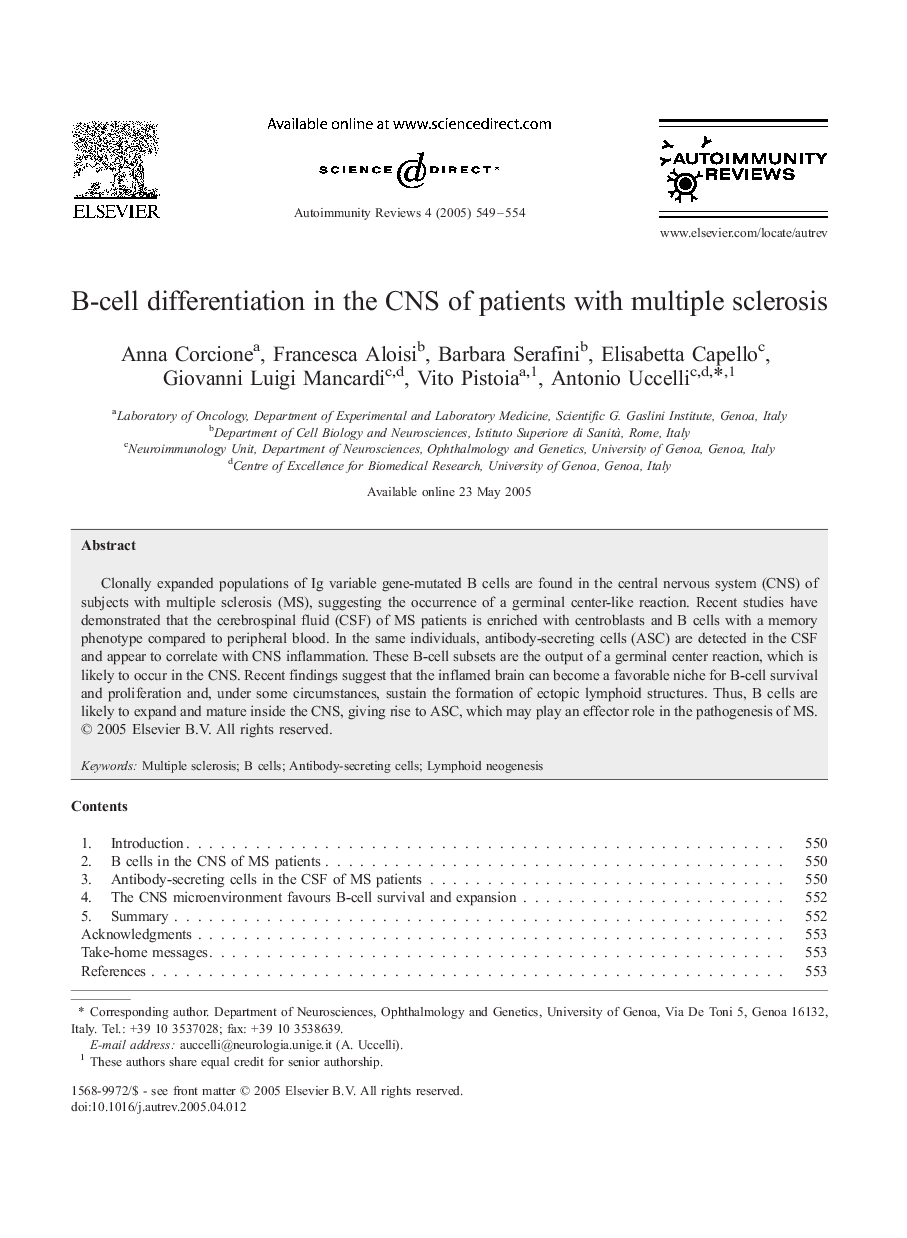| Article ID | Journal | Published Year | Pages | File Type |
|---|---|---|---|---|
| 9261663 | Autoimmunity Reviews | 2005 | 6 Pages |
Abstract
Clonally expanded populations of Ig variable gene-mutated B cells are found in the central nervous system (CNS) of subjects with multiple sclerosis (MS), suggesting the occurrence of a germinal center-like reaction. Recent studies have demonstrated that the cerebrospinal fluid (CSF) of MS patients is enriched with centroblasts and B cells with a memory phenotype compared to peripheral blood. In the same individuals, antibody-secreting cells (ASC) are detected in the CSF and appear to correlate with CNS inflammation. These B-cell subsets are the output of a germinal center reaction, which is likely to occur in the CNS. Recent findings suggest that the inflamed brain can become a favorable niche for B-cell survival and proliferation and, under some circumstances, sustain the formation of ectopic lymphoid structures. Thus, B cells are likely to expand and mature inside the CNS, giving rise to ASC, which may play an effector role in the pathogenesis of MS.
Related Topics
Life Sciences
Immunology and Microbiology
Immunology
Authors
Anna Corcione, Francesca Aloisi, Barbara Serafini, Elisabetta Capello, Giovanni Luigi Mancardi, Vito Pistoia, Antonio Uccelli,
